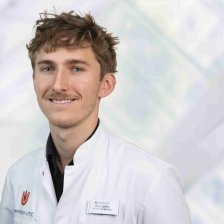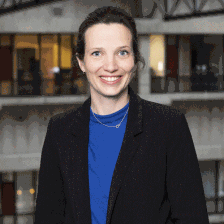The unique Dutch neonatal screening program allows for the detection of central CH. This facilitated identification of patients with central CH as part of multiple pituitary hormone deficiency (MPHD) and patients with isolated central CH over the past decades. In a research program of the Endocrinology sections of the Depts. of Pediatrics and Internal Medicine together with the Endocrine laboratory of Amsterdam UMC, we focused on genetic causes of isolated central CH. We detected three novel genes to be associated with isolated CCeH, i.e., IGSF1, TBL1X and IRS4. Mutations in IGSF1, which encodes a hypothalamic glycoprotein, now represent the most prevalent genetic cause of isolated central CH.
In 2016, we identified mutations in the transducin β-like 1X (TBL1X) gene in patients with a combination isolated central CH and sensorineural hearing loss. TBL1X is an essential subunit of the NCoR/SMRT corepressor complex involved in thyroid hormone signaling. The molecular pathogenesis of this syndrome is now studied using mouse models and iPSC in an international collaboration. In 2018, we reported mutations in the insulin receptor substrate 4 (IRS4) gene in isolated central CH. IRS4 encodes a hypothalamic protein that is part of the insulin and leptin signaling cascade. We recently optimized neonatal central CH diagnostics by establishing reference values for neonatal plasma FT4 and TSH concentrations with FT4 lower limits considerably higher than assumed before. This will improve diagnostic accuracy and facilitate early treatment. In a follow-up study of early-treated patients compared to their siblings, we found normal full-scale IQ (FSIQ) in isolated central CH, but a 7.9 points lower FSIQ in MPHD.
Current research focuses on unraveling how TBL1X and IRS4 are involved in hypothalamic/pituitary regulation of the thyroid gland, and further optimizing neonatal screening and diagnostics for (suspected) central CH.





